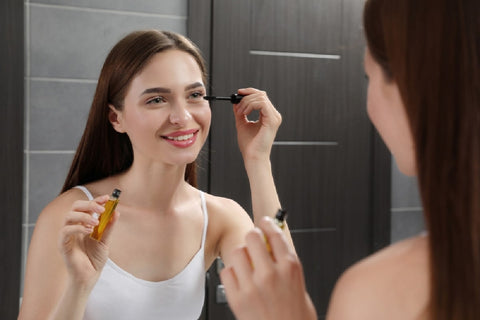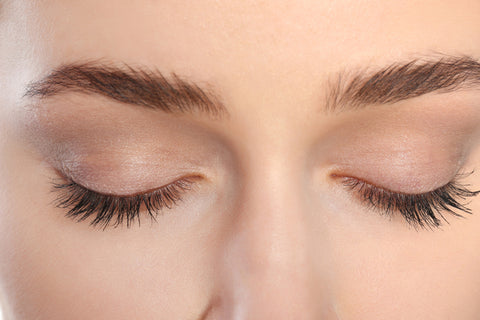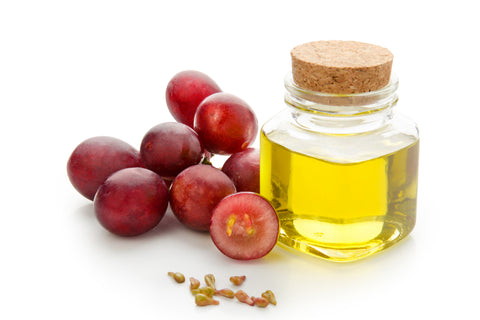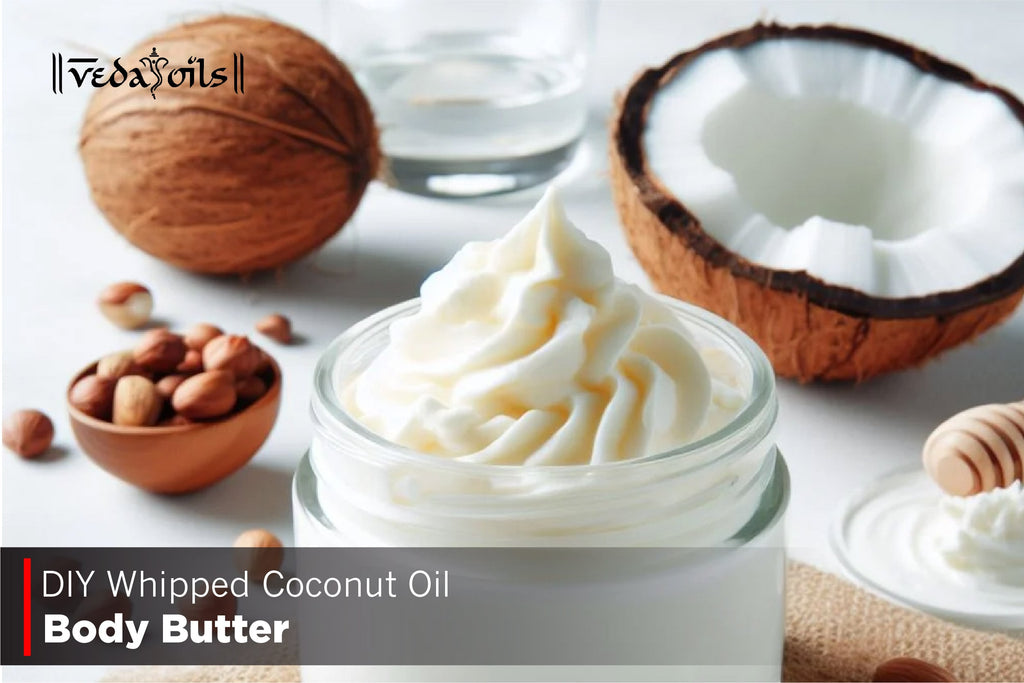Eyelashes are one of the most regarded facial features. At the same time, some have naturally beautiful eyes; on the other hand, some wish for that. So, today, we are here for those who have always wished for delicate and beautiful eyelashes.

Let us tell you about a great natural solution: grapeseed oil. Yes, Grapeseed oil for eyelashes is one of the most sought-after solutions. But before you use it, you must know how it works, how to use it and everything else. So let's dive in and discover Grapeseed oil in detail.
Grapeseed Oil Benefits For Eyelashes
One of the first things we must understand is what makes grapeseed oil a superhero ingredient for eyelashes. So, to help you understand, we have compiled a list of Grapeseed oil benefits for eyelashes. Let's discuss these benefits in detail.
1. Functions As Eye Makeup Remover
One of the first benefits of grapeseed oil for eyelashes is that this oil functions as an eye makeup remover. Yes, grapeseed oil can be used as a makeup remover.
It is quite gentle enough to use around the eye area. The best part? It will help you remove even the most stubborn makeup products and give you an easy makeup-removal process.

2. Strengthens & Protects
The grapeseed oil boasts a nutrient-rich formula that nourishes the lashes and lash roots as it easily penetrates the latest. This leaves them super strong and healthy.
Another reason you can use grapeseed oil for eyelashes is because it strengthens and protects them. It also protects the lashes from damaging free radicals, preventing excessive loss.
3. Moisturizes The Lashes
Grapeseed oil is a rich source of vitamin E and linoleic acid. These two compounds are very helpful in providing intense moisturization to the eyelashes.
Grapeseed oil also moisturizes the lashes. This moisturization and nourishment helps prevent lash loss, which results in fuller and more beautiful lashes.

4. Antioxidant Properties
These antioxidants help protect the eyelashes from environmental damage and free radicals, contributing to healthier eyelashes.
Another reason why you can trust this oil for eyelashes is because of its antioxidant properties. Grapeseed oil is rich in antioxidant properties because of its high content of polyphenols.
5. Boosts Blood Circulation
Improved blood flow can potentially support the delivery of essential nutrients to the hair follicles, promoting lash growth and health.
Last but not least, the reason to use this oil for eyelashes is that it helps improve blood circulation. Massaging grapeseed oil onto the eyelashes may stimulate blood circulation in the follicles.
How To Use Grapeseed Oil For Eyelashes?
Now that you know the benefits of Grapeseed oil for eyelashes, you must know how to use it to reap its benefits. You can use rapeseed oil to benefit your eyelashes in a few ways.

It can be used by itself by simply applying it to the eyes using a cotton pad, or you can use it as a serum to nourish and protect your lashes. So, here's how you can make eyelash serum.
Ingredients:
- Castor Oil - 1 Tbsp
- Grapeseed Oil - 1 Tbsp
- Sweet Almond Oil - 1 Tbsp
- Virgin Coconut Oil - 1 Tbsp
- Clean Mascara Brush and Tube or Spoolie and Small Dish
Directions:
Step 1: Make sure your eyelashes are clean.
Step 2: Mix the oils either in your clean tube or your small bowl.
Step 3: Carefully apply the serum, starting as close to the lash line as possible.
Step 4: Leave overnight, then wash off in the morning.
Frequently Asked Questions
You might have understood the benefits of grapeseed oil for eyelashes, but you may still have doubts that might not have been cleared. So, to help you with that, we have compiled a list of the most commonly asked questions below. You can get your answers from this section. Let's dive in.

Q: Does Grape Seed Oil Help Eyelashes Grow?
Ans: While anecdotal evidence suggests grapeseed oil may enhance eyelash health, scientific support for its role in significant eyelash growth is limited. Individual results may vary.
Q: Is Grapeseed Oil Safe For The Eyes?
Ans: Grapeseed oil is generally safe for the eyes, but caution is needed to avoid direct contact, which may irritate. Perform a patch test and rinse promptly if irritation occurs.
Q: Is Grapeseed Oil Good For Your Eyelashes?
Ans: Grapeseed oil can be beneficial for eyelashes. It may moisturize, strengthen, and provide essential nutrients, promoting overall lash health. However, individual responses may vary.
Q: Can You Put Grapeseed Oil On Your Eyelashes?
Ans: Yes, you can apply grapeseed oil to your eyelashes. Use a clean mascara wand or a cotton swab to gently apply a small amount to the lashes, avoiding direct contact with the eyes.
Conclusion
In conclusion, Grapeseed oil for eyelashes is a great natural solution to keep your eyelashes moisturized, nourished and protected from all the damage. The oil is rich in properties that help you achieve the attractive eyelashes you always wanted. So, it is time to add rapeseed oil to your skincare regimen and make your eyelashes fuller, thicker and healthier.












 Sign in
Sign in Register now
Register now My Reward Points
My Reward Points









